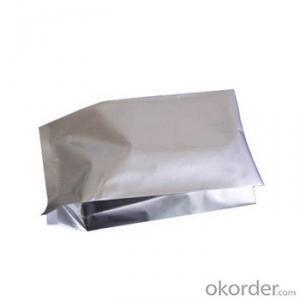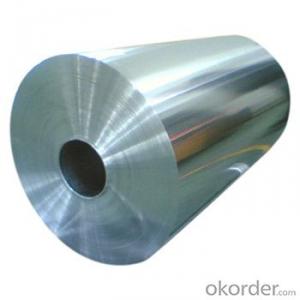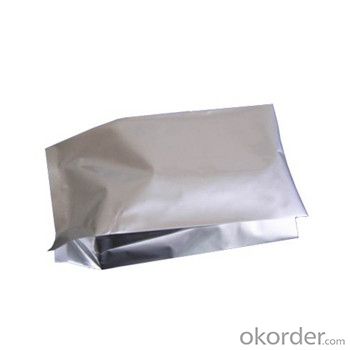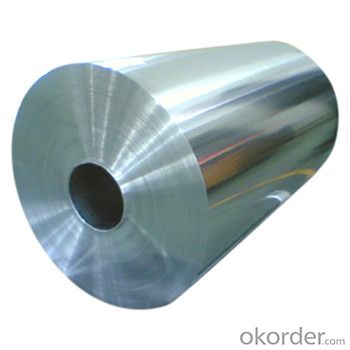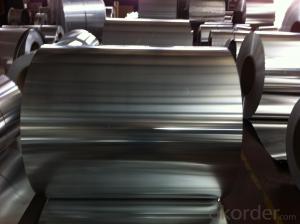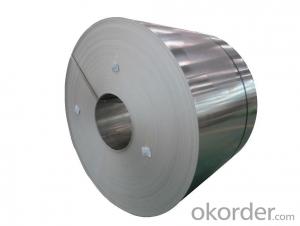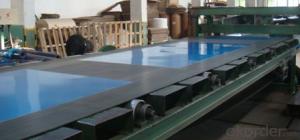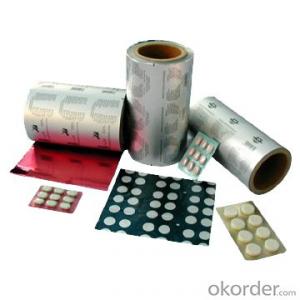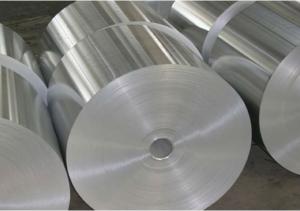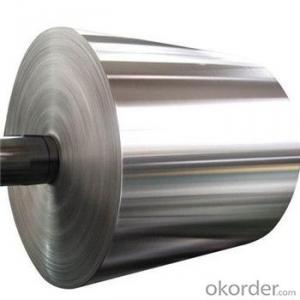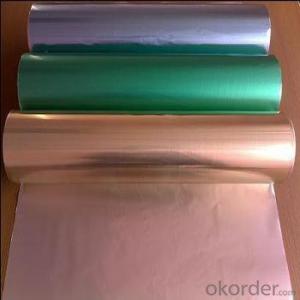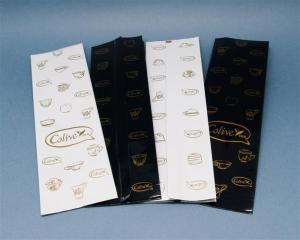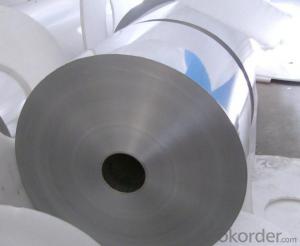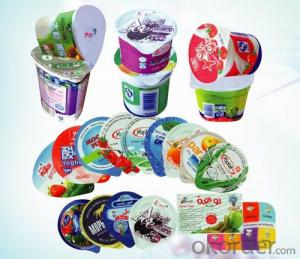Aluminum Roofing Sheets Ontario - Flat Plain Aluminium Foil for Flexible Packaging
- Loading Port:
- China main port
- Payment Terms:
- TT OR LC
- Min Order Qty:
- 3 m.t.
- Supply Capability:
- 10000 m.t./month
OKorder Service Pledge
OKorder Financial Service
You Might Also Like
Specification
1.Description of Flat Plain Aluminium Foil for Flexible Packaging
1) Alloy:1050 , 1060 ,1070,1100,1145,1070,1350
2)temper:O H12 H14 H16 H18 H22
3)Thickness:0.003---10mm
4)Width:1000-1300mm
5)Widely used for drink cans, cosmetic lids, wine lids, PS board bases and other deep processing partsair-condition foil,food package foil , cigarette foil
2.Why you want to choose us?
We've been specialized in aluminium foil for more than ten years, we know this product very well, we know what is good, what is the market price.
3.Specification and Application of Flat Plain Aluminium Foil for Flexible Packaging
Type | Flexible Packaging Foil |
Application | To be used for food packaging/ Cigarette Packaging after lamination |
Alloy | 1235 8011 8079 |
Temper | O |
Thickness | 0.0055MM-0.03MM |
Width | 200MM-1600MM |
Surface | One side bright, One side matt |
Packaging | Free Fumigated wooden box |
4.Pictures of Flat Plain Aluminium Foil for Flexible Packaging
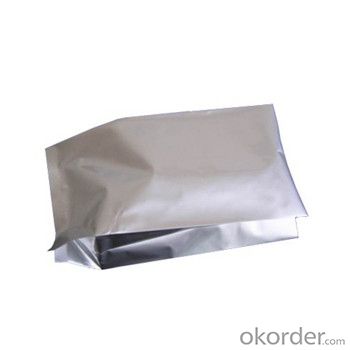
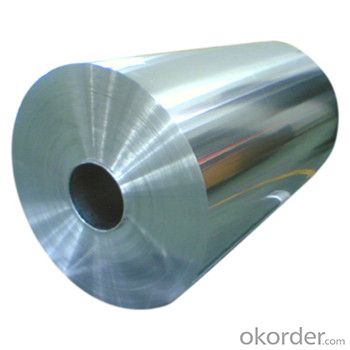
5.FAQ
1) How about your company?
A world class manufacturer & supplier of aluminum coil and alloy blanks. Aluminum production base is comprised of 18 aluminum annealers, 10 coil and foil mills, 4 continuous production lines, 2 hot rolling production line and 3 prepainted lines.
Export 5000 tons per month to Asia, America and Middle East. Always do the best for our clients.
2) Can you guarantee the quality of the products?
We are responsible for the quality of materials to get a long-term cooperation with clients in a reasonable period of time and we are glad to arrange and coordinate any third party inspection for you.
3) What is the delivery time after purchase?
35 day after receiving client’s deposit or correct LC
- Q: How do 101 aluminum sheets compare in terms of strength and durability?
- The strength and durability of 101 aluminum sheets can be evaluated based on their mechanical properties and performance characteristics. In terms of strength, 101 aluminum sheets possess moderate strength that is suitable for many applications. They have a tensile strength of around 27,000 psi (pounds per square inch) and a yield strength of approximately 21,000 psi. This indicates that they can withstand moderate amounts of stress and load without deforming or breaking. Durability-wise, 101 aluminum sheets have good resistance to corrosion, making them suitable for outdoor and marine applications. They are also highly resistant to various forms of weathering, including UV radiation and extreme temperatures. Their corrosion resistance is mainly due to the presence of a thin, protective oxide layer on the surface, which prevents further oxidation and ensures long-term durability. However, it is important to note that 101 aluminum sheets are not the most durable option available. They are not as strong or durable as some other aluminum alloys, such as 6061 or 7075, which have higher tensile and yield strengths. Hence, if a project requires exceptional strength or durability, it may be beneficial to consider using a different aluminum alloy. In conclusion, 101 aluminum sheets offer moderate strength and good durability, making them suitable for a wide range of applications. However, if the project requires higher strength or exceptional durability, it may be necessary to explore alternative aluminum alloys with superior mechanical properties.
- Q: Can 101 aluminum sheets be used in the production of musical instruments?
- Yes, 101 aluminum sheets can be used in the production of musical instruments. Aluminum is a lightweight and durable metal that is commonly used in the manufacturing of various musical instruments. It offers good resonating properties and can produce a bright and clear sound. Additionally, aluminum is highly malleable, allowing it to be easily shaped and formed into different components of musical instruments such as bodies, frames, or keys. Therefore, 101 aluminum sheets can certainly be utilized in the production of musical instruments, contributing to their overall quality and performance.
- Q: A construction worker uses a steel tape to measure the length of an aluminum support column. If the measured length is 17.7 m when the temperature is 21.2°C, what is the measured length when the temperature rises to 35.4°C? (Note: Do not neglect the expansion of the steel tape. Give your answer to three decimal places.)I am really confused... Could someone solve it for me with a step-by-step explanation? Thank you so much.
- Assume linear thermal expansion with constant expansion coefficient. The change of length is given by: ΔL = L?·α·ΔT (L? initial length, α linear thermal expansion coefficient) The overall length of an object as function of temperature is: L= L? + ΔL = (1 + α·ΔT) · L? Consider the measurement at 21.2°C as reference: The aluminum column changes its length to L= (1 + α_aluminum · ΔT) · L? = (1 + 23×10-6 ^C°-1 · (35.4°C - 21.2°C) ) · 17.7m = 17.705m That would be the length measured with a steel tape at reference temperature of 21.2°C. Unfortunately the steel tape expands too. Because the scale increases with the expansion it measures too short. On the expanded tape you read the length L? while the actual length is L. Hence the measured length is: L? = L / (1 + α_steel · ΔT) = 17.705m / (1 + 11×10-6 ^C°-1 · (35.4°C - 21.2°C) ) = 17.003m
- Q: Are aluminum sheets suitable for laser cutting?
- Yes, aluminum sheets are suitable for laser cutting. Aluminum is a commonly used material in laser cutting due to its excellent reflective properties, high thermal conductivity, and low melting point. These characteristics make it an ideal material to be cut by a laser beam. Laser cutting provides precise and clean cuts on aluminum sheets, allowing for intricate designs and complex shapes to be easily achieved. Additionally, laser cutting of aluminum sheets is a fast and efficient process, offering high productivity and cost-effectiveness.
- Q: Is it possible to recycle aluminum sheets while maintaining their quality?
- <p>Yes, aluminum sheets can be recycled without damaging their quality. The recycling process for aluminum is highly efficient, and it retains its properties even after multiple recycling cycles. Aluminum recycling involves melting the scrap material, which requires only 5% of the energy needed to produce new aluminum from raw materials. This process results in minimal loss of material, and the recycled aluminum maintains its strength and durability, making it suitable for various applications just like new aluminum.</p>
- Q: Are aluminum sheets suitable for use in HVAC (heating, ventilation, and air conditioning) systems?
- Yes, aluminum sheets are suitable for use in HVAC systems. Aluminum is a popular material choice for HVAC systems due to its various beneficial properties. Firstly, aluminum is lightweight yet strong, making it easy to handle and install in HVAC systems. Its low density also allows for cost-effective transportation and reduces the overall weight of the HVAC units. Secondly, aluminum has excellent corrosion resistance. HVAC systems often encounter moisture and condensation, especially in air conditioning units, and aluminum's resistance to corrosion ensures its durability and longevity in such environments. Additionally, aluminum sheets have good thermal conductivity, allowing for efficient heat transfer throughout the HVAC system. This property is particularly important in heating and cooling applications, as it helps to distribute the desired temperature effectively. Moreover, aluminum is a non-toxic material, making it safe for use in HVAC systems that circulate air throughout buildings. It does not release any harmful particles or gases into the air, ensuring the quality of indoor air. Lastly, aluminum is a highly recyclable material, making it environmentally friendly. The ability to recycle aluminum sheets reduces the carbon footprint associated with HVAC systems and aligns with sustainability goals. Considering all these advantages, aluminum sheets are indeed suitable for use in HVAC systems, providing an optimal balance of strength, corrosion resistance, thermal conductivity, safety, and environmental friendliness.
- Q: Can aluminum sheet be used for medical applications?
- Yes, aluminum sheet can be used for certain medical applications. Aluminum is a lightweight and durable material that is resistant to corrosion, making it suitable for various medical devices and equipment. For example, aluminum sheets can be used for manufacturing prosthetic limbs, braces, and orthopedic implants. Additionally, aluminum can be used in the production of medical instruments, such as surgical trays, sterilization containers, and imaging equipment. However, it is important to note that aluminum may not be suitable for all medical applications, as certain medical devices may require specific properties or materials to meet regulatory standards and ensure patient safety. Therefore, the use of aluminum sheet in medical applications should be determined on a case-by-case basis, considering the specific requirements and regulations of each application.
- Q: what's the size of gap while pressing 6mm aluminum sheet?
- choose the 8-10% of the thickness for two-sided gaps.
- Q: How do you prevent oxidation of aluminum sheets?
- One way to prevent oxidation of aluminum sheets is by applying a protective coating or paint to the surface. This barrier creates a physical barrier between the aluminum and oxygen, preventing the oxidation process from occurring. Additionally, storing the aluminum sheets in a dry and controlled environment, away from moisture and humidity, can help minimize the chances of oxidation.
- Q: I just built a stone wall with illuminated glass features embedded, and to make them shine evenly, I had all sides but the visual one wrapped in industrial thickness aluminium foil. One week later, the foil has disintegrated. I have used type 10 Portland. What is going on?
- Embedded aluminum roof flashing, aluminum water stops, aluminum electrical conduit, introduced aluminum powder (sometimes used to foam concrete), or embedded structural aluminum shapes may all corrode in concrete or mortar. In all cases, a reaction that forms aluminum hydroxide and hydrogen gas occurs, and may cause expansion and cracking of the concrete or mortar. The common use of calcium chloride (or other alkali compounds), and dampness of the concrete increases the reaction rate. Usually, coating the aluminum with bituminous paint, impregnated paper or felt, plastic, or an alkali-resistant coating will prevent or sharply reduce the corrosion.
Send your message to us
Aluminum Roofing Sheets Ontario - Flat Plain Aluminium Foil for Flexible Packaging
- Loading Port:
- China main port
- Payment Terms:
- TT OR LC
- Min Order Qty:
- 3 m.t.
- Supply Capability:
- 10000 m.t./month
OKorder Service Pledge
OKorder Financial Service
Similar products
Hot products
Hot Searches
Related keywords
